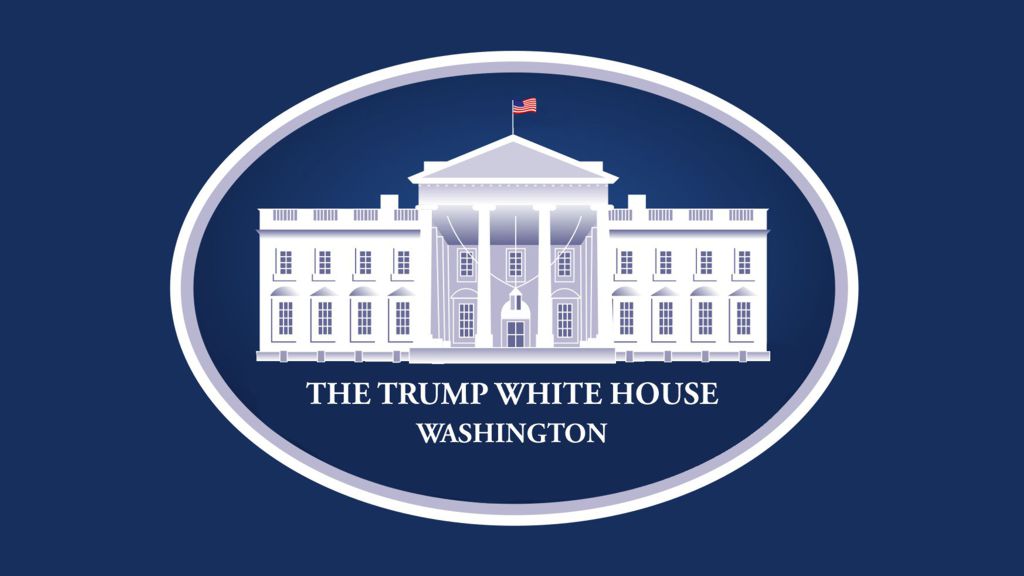In Proclamation 9645 of September 24, 2017 (Enhancing Vetting Capabilities and Processes for Detecting Attempted Entry Into the United States by Terrorists or Other Public-Safety Threats), I recognized that the United States has “developed a baseline for the kinds of information required from foreign governments to support the United States Government’s ability to confirm the identity of individuals seeking entry into the United States as immigrants and nonimmigrants, as well as individuals applying for any other benefit under the immigration laws, and to assess whether they are a security or public-safety threat.” That baseline is designed to allow the United States to assess adequately whether foreign nationals from a particular country seeking to enter or apply for an immigration benefit from the United States pose a national security or public-safety threat. It also includes an assessment of any national security or public-safety risks that may emanate from a country’s territory.
After evaluating a comprehensive worldwide assessment of the performance of more than 200 countries against the baseline criteria, I placed entry suspensions and limitations on nationals of countries that failed to meet the baseline or whose nationals otherwise posed a significant threat. I also directed the Secretary of Homeland Security (Secretary), in consultation with the Secretary of State, to develop and implement a process to review whether countries have met the baseline criteria described in Proclamation 9645; develop recommendations regarding whether the suspensions and limitations should be continued, modified, terminated, or supplemented; and submit to me a report detailing these recommendations every 180 days. I further directed the Secretary of State to engage with countries subject to these entry restrictions in order to improve their performance against the baseline criteria, as practicable and appropriate, and consistent with the foreign policy, national security, and public-safety objectives of the United States. In taking these steps, I strengthened U.S. immigration vetting capabilities and processes, making our country safer. More work remains to be done, especially in light of evolving modern global threats, but we have made important progress.
On March 30, 2018, the Secretary transmitted to me the first of the required reports. In the report, the Secretary recommended that the suspensions and limitations on the entry of foreign nationals from one country be terminated. The Secretary based this recommendation on the results of the review and engagement process developed with the Secretary of State. The review process consisted of three phases: (1) country data collection; (2) data review, analysis, and engagement; and (3) consultation with executive departments and agencies (agencies).
During the data collection phase, the Department of State (State) surveyed all U.S. diplomatic missions worldwide on the performance of each country in meeting the baseline. For countries with deficiencies previously identified in the summer of 2017, missions provided their perspective on any steps taken to improve. The Department of Homeland Security (DHS) simultaneously collected and reviewed relevant diplomatic, law enforcement, and intelligence reporting, along with data from other authoritative sources within the United States Government, intergovernmental organizations, and the public domain.
During the data review, analysis, and engagement phase, DHS and State reviewed the information gathered, including survey responses from missions covering more than 200 countries, to determine whether each country’s performance against the baseline criteria had improved, worsened, or remained the same. The review focused on any observed changes during the review period in a country’s cooperation with the United States, as well as any indicators of potential deficiencies in satisfying the baseline. In cases in which survey responses from the U.S. missions required follow-up, DHS and State engaged with the missions and requested additional information. DHS and State also, as practicable and appropriate, verified each country’s implementation of the criteria against other diplomatic, law enforcement, and intelligence reporting, and through authoritative sources of information external to the United States Government.
DHS and State prioritized and, as practicable and appropriate, actively engaged those countries currently subject to travel restrictions in an effort to address and correct any deficiencies. U.S. missions abroad routinely engaged with their host governments, and DHS and State engaged with the pertinent foreign embassies in Washington, D.C. When a foreign government expressed interest in cooperating with the United States to address deficiencies, such discussions were supplemented by high-level meetings with appropriate U.S. officials and subject‑matter experts. Through this process, for example, DHS and State organized a site visit to the Republic of Chad (Chad) in December 2017 to discuss specific deficiencies and potential remedies with relevant officials. Additionally, DHS met with the Libyan Foreign Minister to discuss Libya’s ongoing efforts to comply with the baseline.
Based on the information collected, DHS evaluated whether each country in the world is meeting the baseline criteria. If the information indicated a potential change in a country’s performance, but the information was not sufficiently concrete, that country’s compliance status was not adjusted. In such instances, DHS and State have treated such indicators as the basis for further evaluation during the next review period.
DHS and State also identified certain developments or contextual indicators that would trigger further review of a country’s performance to assess whether the country continues to meet information-sharing and identity-management criteria in a manner that mitigates any emerging risk, threat, or vulnerability. The goal of this evaluation was to ensure any recommendation to adjust current travel restrictions, either positively or negatively, would be grounded in articulable information and observations that demonstrate improved or degraded performance.
The Secretary’s review concluded that, while more work must be done, identity-management and information-sharing practices are improving globally. Countries have revived partnership negotiations with the United States that were long dormant; improved the fraud-deterring aspects of their passports; established new protocols for cooperating with U.S. visa-issuing consulates; and shared information on criminals, known or suspected terrorists, and lost and stolen passports.
In Proclamation 9645, I imposed entry suspensions and limitations on the nationals of Chad. The Secretary has concluded that Chad has made marked improvements in its identity-management and information-sharing practices. Shortly after I signed the Proclamation, Chad made additional efforts to cooperate with the United States to help it satisfy the baseline. The United States worked closely with Chad to discuss the identity-management and information-sharing criteria. This endeavor included U.S. officials engaging with the Government of Chad to understand its domestic operations in significant detail in order to develop advice and guidance on how Chad could satisfy the baseline.
Chad was receptive to this engagement and has made notable improvements. Specifically, Chad has improved its identity-management practices by taking concrete action to enhance travel document security for its nationals, including taking steps to issue more secure passports and sharing updated passport exemplars to help detect fraud. The Government of Chad also improved handling of lost and stolen passports, the sharing of which helps the United States and other nations prevent the fraudulent use of such documents. Additionally, the United States has confirmed that Chad shares information about known or suspected terrorists in a manner that makes that information available to our screening and vetting programs and has created a new, standardized process for processing requests for relevant criminal information. Chad has proven its commitment to sustaining cooperation with the United States through a regular review and coordination working group. This working group, which has met twice since Proclamation 9645 was issued, allows for regular tracking of the progress summarized above. In sum, Chad has made improvements and now sufficiently meets the baseline. I am therefore terminating the entry restrictions and limitations previously placed on the nationals of Chad.
The Secretary determined that, despite our engagement efforts, other countries currently subject to entry restrictions and limitations did not make notable or sufficient improvements in their identity-management and information-sharing practices. Though remaining deficient, the State of Libya (Libya) is taking initial steps to improve its practices. DHS and State are currently working with the Government of Libya, which has designated a senior official in its Ministry of Foreign Affairs to serve as a central focal point for working with the United States. DHS and State presented Libya with a list of measures it can implement to rectify its deficiencies, and it has committed to do so. Despite this progress, Libya remains deficient in its performance against the baseline criteria, and the Secretary recommends at this time against removal of the entry restrictions and limitations on that country and the other countries currently subject to them.
Finally, the Secretary found insufficient information that other countries’ performance against the baseline criteria had degraded during the review period. In addition, DHS identified contextual indicators suggesting closer review of a country’s practice was warranted in only one instance, and on closer examination, DHS determined that the country’s practice did not warrant imposition of additional restrictions or limitations at this time.
During the interagency consultation and recommendation phase, the Secretary presented to the Secretary of State, the Attorney General, the Director of National Intelligence, and other appropriate heads of agencies a preliminary recommendation that the suspensions and limitations of entry of foreign nationals from Chad be terminated, while the other suspensions and limitations remain unaltered. Following this consultation, the Secretary finalized her recommendations and submitted the report to me.
I have decided, on the basis of the Secretary’s recommendations, to modify Proclamation 9645.
NOW, THEREFORE, I, DONALD J. TRUMP, by the authority vested in me by the Constitution and the laws of the United States, including sections 212(f) and 215(a) of the Immigration and Nationality Act, 8 U.S.C. 1182(f) and 1185(a), and section 301 of title 3, United States Code, find that the entry into the United States of the nationals of Chad, as immigrants, and as nonimmigrants on business (B-1), tourist (B-2), and business/tourist (B-1/B-2) visas, no longer would be detrimental to the interests of the United States, and therefore hereby proclaim the following:
Section 1. Removal of Restrictions and Limitations on Chad. Section 2 of Proclamation 9645 is amended by striking subsection (a).
Sec. 2. Effective Date. This proclamation is effective at 12:01 a.m., eastern daylight time on April 13, 2018.
Sec. 3. General Provisions. (a) Nothing in this proclamation shall be construed to impair or otherwise affect:
(i) the authority granted by law to an executive department or agency, or the head thereof; or
(ii) the functions of the Director of the Office of Management and Budget relating to budgetary, administrative, or legislative proposals.
(b) This proclamation shall be implemented consistent with applicable law and subject to the availability of appropriations.
(c) This proclamation is not intended to, and does not, create any right or benefit, substantive or procedural, enforceable at law or in equity by any party against the United States, its departments, agencies, or entities, its officers, employees, or agents, or any other person.
IN WITNESS WHEREOF, I have hereunto set my hand this tenth day of April, in the year of our Lord two thousand eighteen, and of the Independence of the United States of America the two hundred and forty-second.
DONALD J. TRUMP







